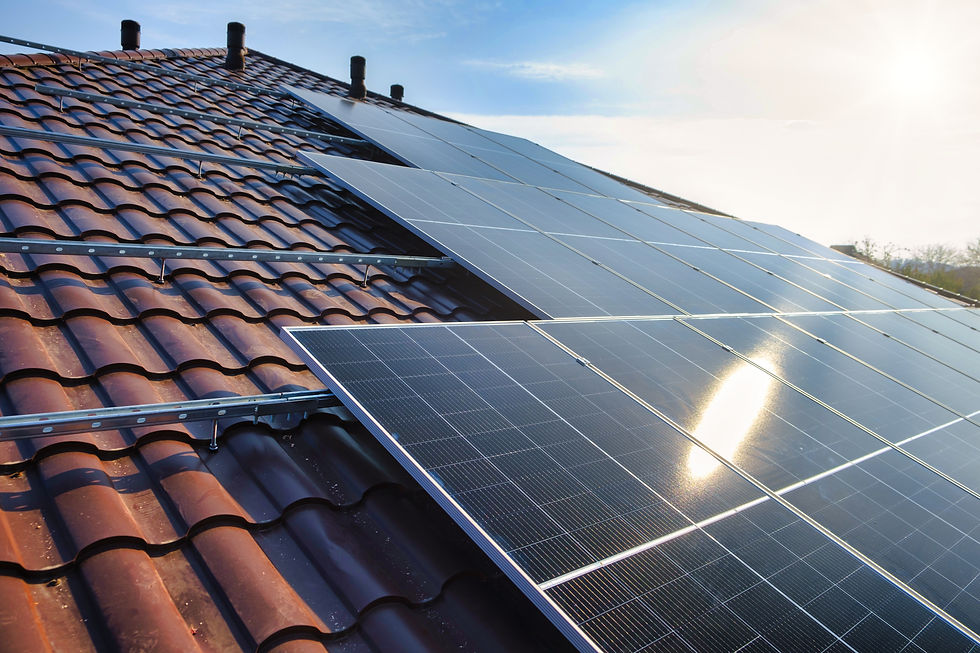What is the efficiency of Solar Panels?
- Apr 24, 2023
- 2 min read

Solar panels are an efficient way to convert sunlight into electricity. The efficiency of a solar panel refers to the percentage of sunlight that it can convert into usable electricity. The efficiency of solar panels has increased significantly over the past few decades. Today's solar panels typically have an efficiency rating near 20%, with some high-end models boasting efficiency ratings of up to 25%. The remaining 80% of sunlight is either reflected or absorbed as heat.
The efficiency of a solar panel can be affected by a number of factors, including the angle and orientation of the panel, the amount of sunlight that the panel receives, and the temperature of the panel.
Orientation
The orientation and angle of a solar panel can significantly affect its efficiency, as they determine how much sunlight the panel receives. Solar panels generate the most electricity when they face directly toward the sun and are tilted at an angle equal to the latitude of the location plus or minus 15 degrees. By adjusting these factors, the efficiency of the solar panel can be maximized. Here in Phoenix, it is optimal to have your solar panels facing south, towards the sun.
Temperature
Solar panel efficiency is affected by temperature, with higher temperatures leading to lower efficiency. The temperature coefficient of a solar panel determines how much efficiency decreases for every degree of Celsius above the optimal operating temperature. Adequate airflow around the panel is important to keep it cool and maximize efficiency. While it does get hot in Phoenix, the desert breeze helps keep the panels from overheating.
Shading
Shading can significantly reduce the efficiency of solar panels by reducing the amount of sunlight they receive. Even a small amount of shading can have a big impact, as solar panels are typically connected in series. If just 5% of a panel is shaded, the entire panel's output can be reduced by up to 50%. To maximize efficiency, install panels in a location with minimal shading and use shading analysis tools or micro-inverters to optimize placement.
Cost Savings
Solar panels can provide significant cost savings over the long term by reducing or eliminating electricity bills and providing a reliable source of renewable energy. The amount of savings depends on factors such as electricity costs, solar panel system size and efficiency, and sunlight availability. Solar panel systems can generate enough electricity to offset the initial investment and provide a positive ROI, particularly in areas with high electricity prices or generous government incentives. In addition to reducing electricity bills, solar panels can also increase property value and provide a hedge against future electricity price increases. While the upfront cost can be significant, financing options such as solar leases, power purchase agreements, and financing programs can make the investment more affordable.
For more info, get in touch with one of our solar pros!



Comments